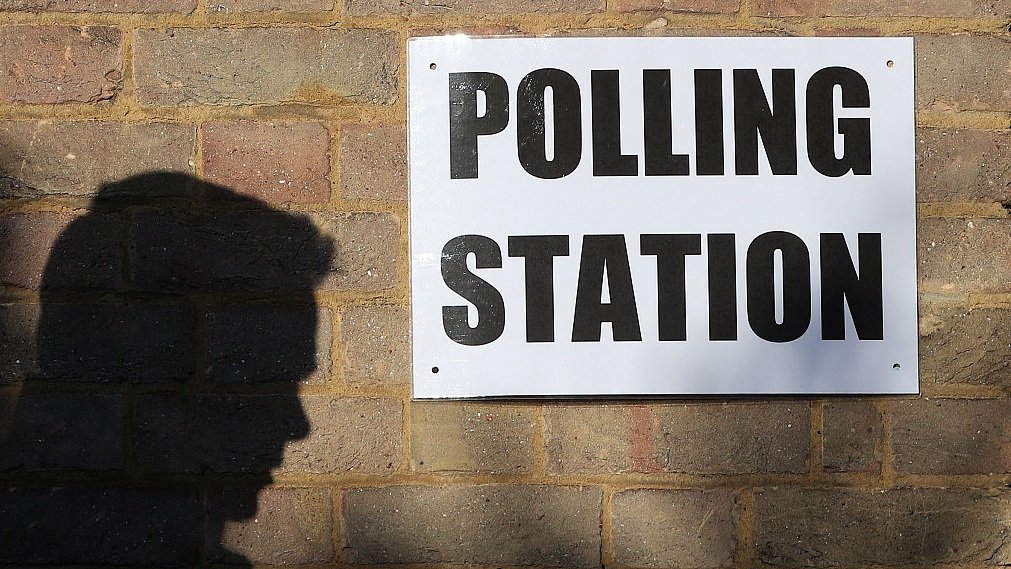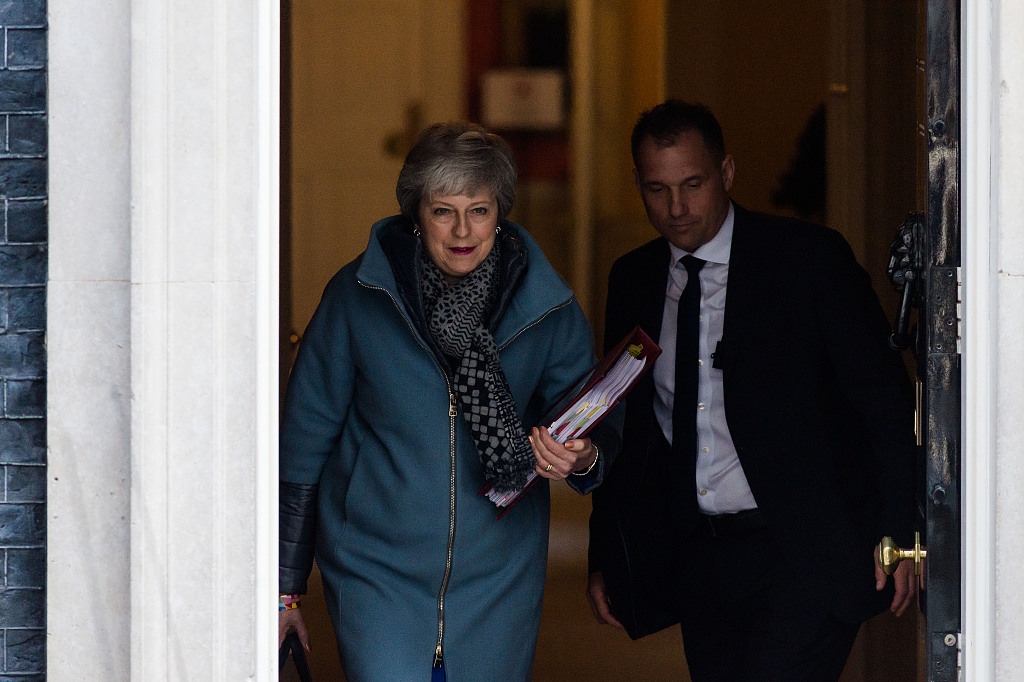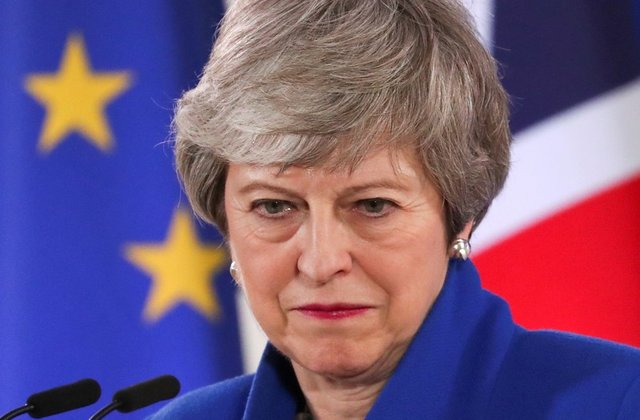
Opinion
20:03, 04-May-2019
Has Brexit doomed the Conservative Party?
Updated
21:33, 04-May-2019
Chris Deacon

Editor's note: Chris Deacon is a postgraduate researcher in politics and international relations at the University of London and previously worked as an international commercial lawyer. The article reflects the author's opinion, and not necessarily the views of CGTN.
Theresa May's governing Conservative Party endured severe losses in Thursday's local elections in the United Kingdom. The party expected a difficult result; however, the spectacular defeat went beyond even their worst expectations.
Out of just under 5,000 local council seats that the Conservatives were defending, they lost over one quarter. This included strongholds in areas considered heartlands of the party, such as the south-east of England.
Two other factors make this shocking result even worse for May's party. Firstly, the main opposition Labour Party also lost seats. It is not uncommon in local elections for governing parties to sustain losses at the expense of a resurgent opposition; however, this was not the case here.
Secondly, the lack of alternative parties should have helped the Conservatives. Neither of the newly-formed parties – Change UK and the Brexit Party – ran candidates in these elections. Furthermore, the UK Independence Party (UKIP) only ran candidates in a minority of seats.
This means that the consistently pro-Brexit parties and the center-ground Change UK (which includes former members of the Conservative Party) were not there to steal Conservative votes.
And yet the party still did terribly.

British Prime Minister Theresa May leaves 10 Downing Street for the weekly PMQ session in the House of Commons on April 10, 2019, in London, England, ahead of traveling to Brussels for an emergency EU summit on Brexit. /VCG Photo
British Prime Minister Theresa May leaves 10 Downing Street for the weekly PMQ session in the House of Commons on April 10, 2019, in London, England, ahead of traveling to Brussels for an emergency EU summit on Brexit. /VCG Photo
These were local council elections which, technically, bear little relation to national or, indeed, international policy. But such elections – to the great dismay of local candidates who work hard on everyday issues such as garbage collection and damaged roads – are often used as a proxy for national political issues.
In the case of this election, it is undoubtedly Brexit that has caused this routing of the Conservative Party.
In its conducting of the Brexit negotiations, May's government has risked alienating both wings of its party. The Brexit-supporting right-wing of the party is dismayed by the compromise agreement that May has reached with the EU. They consider this a betrayal of the Brexit vote and are upset that what they consider to be a “real” Brexit appears not to be on the table.
They are also deeply frustrated that the UK did not leave the EU on the date it was meant to at the end of March. The two extensions of the Article 50 negotiating process make them believe that May is trying to frustrate the Brexit process.
However, the other, center-ground wing of the party is also dismayed. Most of these Conservatives supported the UK remaining in the EU. Some of them now maintain this position and are disappointed by the government's refusal to even consider holding a second referendum.
Others agree that the UK must now leave the EU, due to the results of the first referendum; however, they oppose May's plans and want to see a “softer” Brexit. They believe that May did not consult widely enough in her plans and has spent too much time listening to the wishes of the right-wing of the party.
In this way, Theresa May – and, by extension, her Conservative Party – have criticism coming from both wings of their usual voters. Currently, they are not pleasing either, and this has been shown by the local election results.

British Prime Minister Theresa May holds a news conference following an extraordinary European Union leaders summit to discuss Brexit, in Brussels, Belgium, April 11, 2019. /Reuters Photo
British Prime Minister Theresa May holds a news conference following an extraordinary European Union leaders summit to discuss Brexit, in Brussels, Belgium, April 11, 2019. /Reuters Photo
It appears that those on the right-wing of the party refused to vote in these elections, or did so by “spoiling” their ballots (i.e. they defaced them or wrote something like “Brexit now!” on the ballot – the number of such quasi-votes is recorded in the UK). Such voters are highly likely to switch to the Brexit Party in the European elections later this month and, possibly, at the next General Election also.
At the same time, center-ground supporters of the Conservatives appear to have voted for pro-second referendum parties in these local elections, such as the Liberal Democrats. Similarly to the right-wingers, these voters too will likely stay away from the Conservatives at the next election, keeping their vote with the Lib Dems, or switching to Change UK, who will also begin election participation later this month.
Suffice to say, the Conservative Party is in deep trouble. It is not alone in this regard; the Labour Party is also struggling to please both of the opposing groups within its members. But Labour can more likely afford to do this given that, as the opposition party, it can stand back slightly from the Brexit process.
The Conservative Party, on the other hand, is firmly wedded to Brexit. If May insists on refusing the “harder” Brexit that right-wingers want, the party will alienate them. If she refuses to allow a second referendum or a much “softer” Brexit, she will alienate the center ground.
Currently, her Conservative government looks set to continue its path of pleasing neither side. This could doom the Conservative Party for a generation.
(If you want to contribute and have specific expertise, please contact us at opinions@cgtn.com.)

SITEMAP
Copyright © 2018 CGTN. Beijing ICP prepared NO.16065310-3
Copyright © 2018 CGTN. Beijing ICP prepared NO.16065310-3